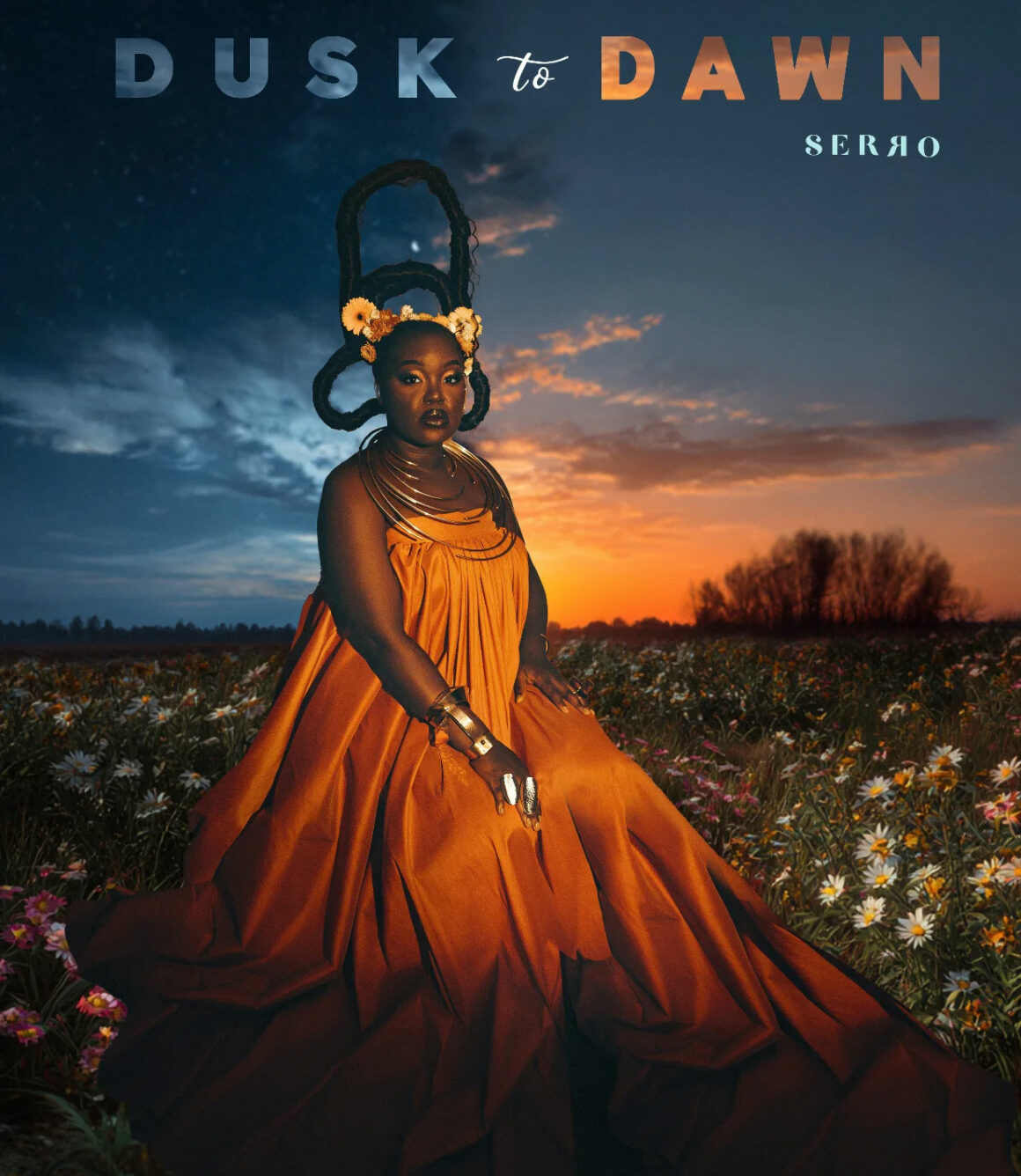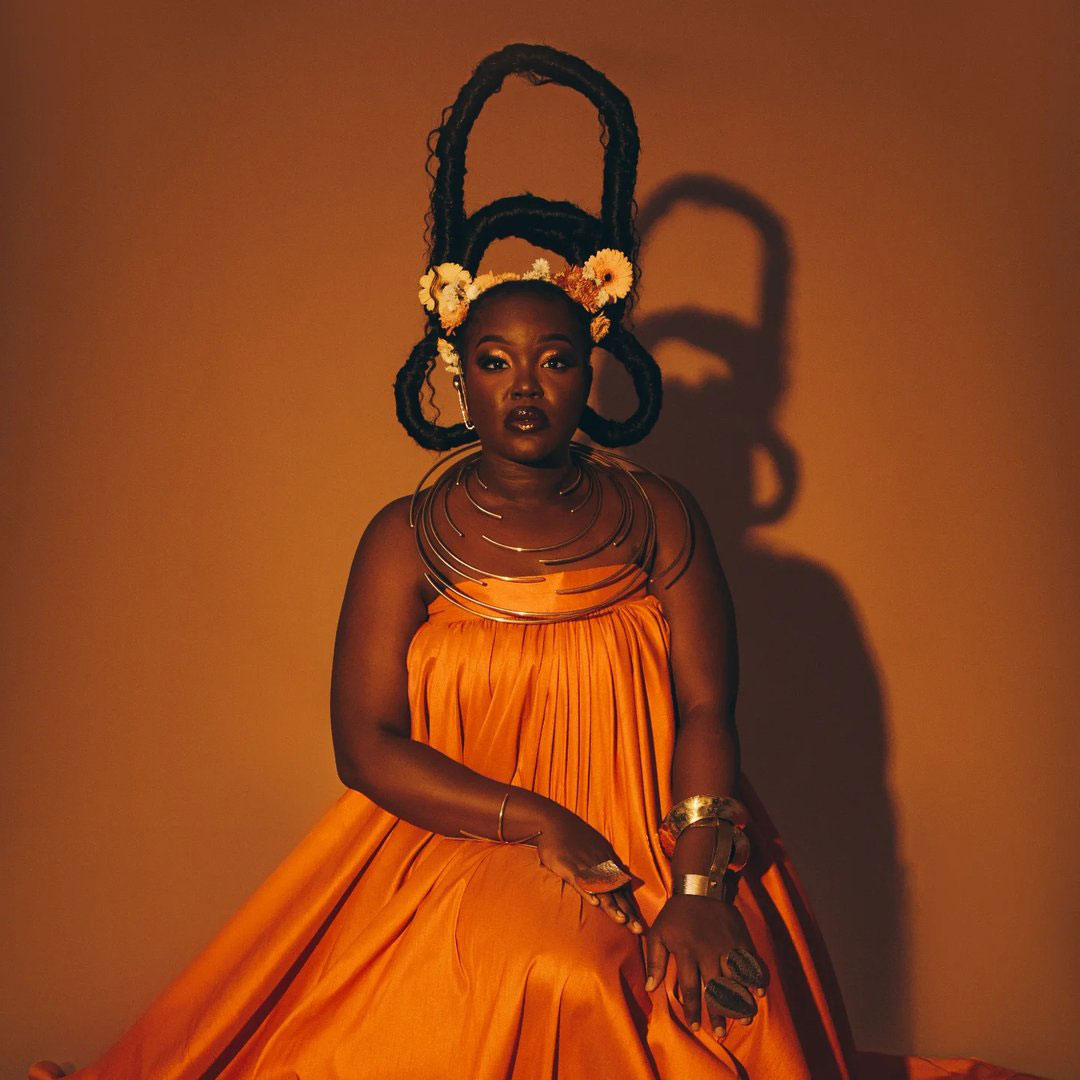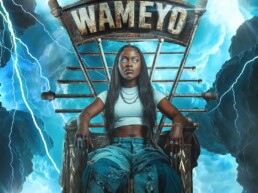This might not be the best way to start an album review but I must admit that Serro’s Dusk To Dawn is an album that is full of horrible and heartbreaking things. A key lesson is that these things happen to everyone, not just to bad people. Of course, by the time a few of the songs on Dusk To Dawn have played, the notion of trying to rationalize the singer’s emotions, the hurt and the pain, the joy and the expectation becomes so unrealistic that the only acceptable action left to take is to immerse yourself in the music and allow the sounds of the album to flow through you. Perspective is everything on this album and by viewing the album not as an outsider but as a replacement of the main persona, will you get the full experience. The album plays out like a stage production, with two distinct halves, both of which carry different tonal and emotional feels, with a beginning that is dark and brooding and an ending that is bright and shining. Serro is only the architect of the journey though and she places the listener as the main character, with the only way to fully experience and understand the album is for you to take your place at center stage.
Giza Imenifunika
Dusk To Dawn arrives heavy with the kind of baggage that it sometimes feels not able to carry, at least it seems that way at the beginning. Serro has a smoothness in her voice that hovers over politeness, avoiding sobbing explosions of grief for a more reserved approach. She isn’t the type of artist I expected to turn personal devastation into public exploration but she does it masterfully here.

The album opens with the intro which is aptly titled Giza Imenifunika, a short track that sets the stage for the pain and hurt that engulfs the first half of the album. After this goes straight into three tracks that cover the emotional pain of a broken relationship. Nielewe, Chizi and 6 Years are a requiem for a love that no longer exists. On Chizi, where she is joined by mtendawili Israel Onyach she sings “Enyewe mimi ni fala/niaje sikuona unahanya” and on 6 Years she says “6 years and a baby/but you still wouldn’t choose me”. Lyrically Serro lays her heart out for all to see on these three tracks, which would confuse most people that this is a breakup album when it is not. Serro’s lyricism jumps between desperation, confusion and love, but always maintains a high emotional charge. On these three tracks she places the listener on a moving, personal journey through the experience of her relationship, detailing every feeling and every emotion beautifully.The songs go from that anticipation on Nielewe to that of betrayal on 6 years, its a confusing ride but then again, when did a breakup ever make sense.

Serro continues to cut even deeper on the next track A Mourner’s Cry, a song that hits hardest on the album because of how openly Serro confronts her grief. The track plays like a traditional dirge, slow and dragging, forcing you to face the melancholy of the composition without distraction. Assisted by Coster Ojwang and Anariko she sings, “kifo hakina huruma/…wimbo wa omboleza”, she keeps her voice small and vulnerable offering a touching tribute to her late father while also showing how painful grief can become. It is raw, honest and terribly personal, giving us the emotional high point of the album.
Thankfully the next tracks on the first act of the album reduce the emotional intensity while softly ushering us into the next act. On Ero Awerni faith finally appears as a theme, calling on assistance from the Lord for protection and guidance through a tumultuous time in her life. The first act closes with Ngulu and Mwanga, two of the weaker tracks on the album with Mwanga being the official closer of the first act, a positive declaration of finding the light in your life. All across the first half of the album, Serro succeeds in making music of heavy emotional eloquence, the ride takes us from a simple calm to an exploration of deep and heavy emotions which finally gives us glimpses of a new horizon in the midst of all the pain, heartbreak, grief and sorrow
Jua Imechomoza
After the emotionally heavy first act, the album transitions at the interlude, Jua Imechomoza, a track about the phrase “Even if you are not ready for the day, it cannot always be night” a theme that covers the entirety of the second act of the album, a tonal opposition to the first act.
The second act of Dusk to Dawn explores themes of self love, growth and self-discovery with a vulnerability that feels both personal and universal. This part of the album is laced with declarations on relationships and finding peace within yourself, capturing the bittersweet beauty of change. On Body Serro embraces body positivity with a vigor that is reminiscent of I am Not My Hair by India Arie. “In the depths of your soul/ It doesn’t matter if you’re big or small,” she sings, giving the listener the little nudge that is required to completely love themselves. While the first act confronts the painful inevitability of love’s end , Nitakuwa Na Wewe fully captures the excitement of finding love again, the playful nature of a new attraction and the safety that love brings. The brightness of the second act of the album is inescapable, painting an image of hope, freedom and love that uplifts the listener after the first act.
Lyrically, the second act is an exploration of tenderness, happiness, and warmth. Serro’s lyrics on this part of the album call the listeners in with a familiarity that evokes empathy and softness in a way that sharply contrasts the first act. Songs like Find A Feeling taps into a constant longing for peace, speaking to life’s struggles and how we can find comfort by appreciating life’s little joys . The heartfelt simplicity of Taya’s Letter and the effervescent love on Taya bring moments of joy and happiness, while a track like Nakuombea (Not Alone) convey a familiar certainty about God’s grace even through the hardest points of life. This lyrical depth is what gives Dusk To Dawn its resonance with the audience. This is not simply a collection of songs but a clear view into the human experience, capturing the ebbs and flows of what it means to experience life and its many emotions with a sensitivity that feels timeless. Through her music, Serro invites us into her world, making this album a mirror into her journey while placing us at the center of it so that we can relate to it as much as possible.
Serro’s Dusk to Dawn is not simply a collection of songs but a clear view into the human experience, capturing the ebbs and flows of what it means to experience life and its many emotions with a sensitivity that feels timeless.
At the end of both acts of the album we are fully in tune with our fragility and resilience through the journey that Serro guides us through. Throughout this record she becomes our mirror, reflecting life as it so often is, a confusing, frustrating mess but also somehow she reminds us to find beauty in life’s imperfections. The simple fact here is that Serro continues writing songs around the rollercoaster of emotions that is life and putting them out on such beautiful records is proof that, despite all the heartbreaking and life-altering cutting truths she’s witnessed in the process of existence, she still somehow clings to the hope that tomorrow brings, because every sunrise is a chance to make everything better.
Hafare Segelan
Hafare Segelan is a music writer, critic, curator and content creator who is the brainchild behind two popular podcasts, Surviving Nairobi and Breaking Hertz. His work has been featured on platforms such as Spotify, Apple Podcasts, The BBC and many more. You can find him on Bluesky as @hafare.bsky.social




